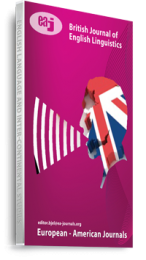This study incorporates a mathematical linguistic approach to explore (a) how learning environments may interfere oral proficiency, (b) what metrics can possibly discriminate the oral learning quality. To this end, Japanese learners from classroom and natural environment are selected. Four oral tests were carried out. Dependency distance is utilised for measuring syntactic diversity and the moving window of type-token ratio is used for testing lexical sophistication. The finding suggests that classroom education results in higher scores in picture description, role play and storytelling, leading to learners being good at syntactic structure, obtaining solid grammar and diverse linguistic expressions. Learning in natural environment, however, has an advantage in enrichening vocabulary and listening comprehension, leading to a quick and more lexicon-contained response to the interaction. A correlation analysis brings to light that in natural environment learning, the longer the MDD, the higher the MAMR and MAMSP. To put it another way, the more diverse the MDD, the greater the lexical sophistication.
Citation: Wenchao Li (2022) The Learning Environment and Oral Proficiency: Exploring The Measures, British Journal of English Linguistics, Vol. 10, Issue 4, pp.18-24
Keywords: Japanese language acquisition, Learning Environment, Oral Proficiency, mathematic linguistics

